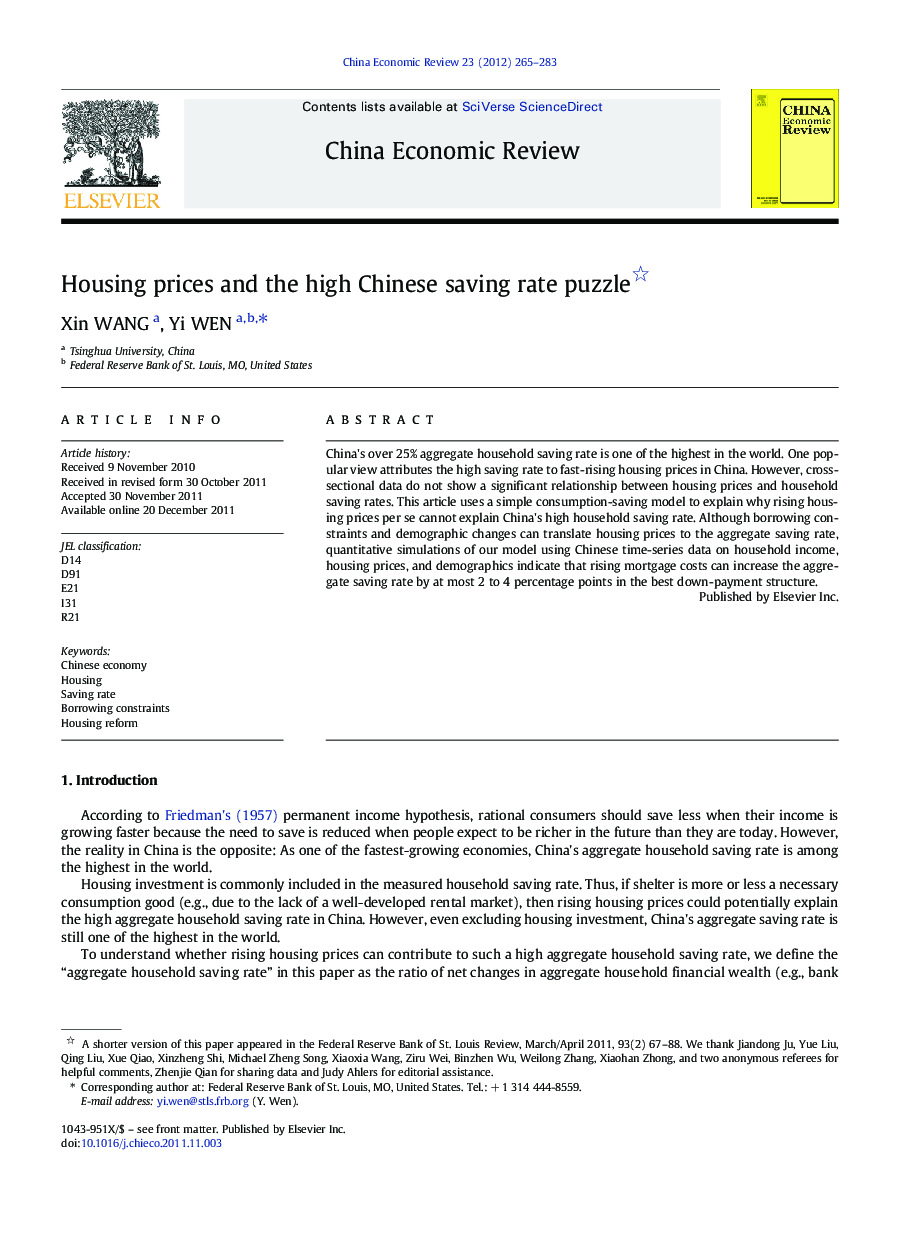| Article ID | Journal | Published Year | Pages | File Type |
|---|---|---|---|---|
| 5047792 | China Economic Review | 2012 | 19 Pages |
China's over 25% aggregate household saving rate is one of the highest in the world. One popular view attributes the high saving rate to fast-rising housing prices in China. However, cross-sectional data do not show a significant relationship between housing prices and household saving rates. This article uses a simple consumption-saving model to explain why rising housing prices per se cannot explain China's high household saving rate. Although borrowing constraints and demographic changes can translate housing prices to the aggregate saving rate, quantitative simulations of our model using Chinese time-series data on household income, housing prices, and demographics indicate that rising mortgage costs can increase the aggregate saving rate by at most 2 to 4 percentage points in the best down-payment structure.
⺠One popular view attributes China's high saving rate to fast-rising housing prices. ⺠We provide a coherent theoretical analysis for why this view may be false. ⺠Both cross-sectional data and time series simulations support our view. ⺠Hence, rising living costs can't be the major reason for China's high saving rate.
